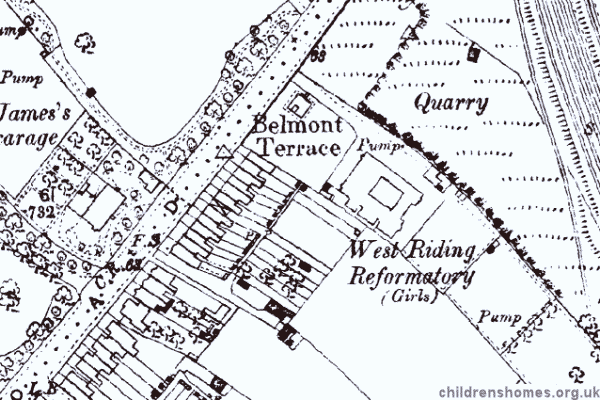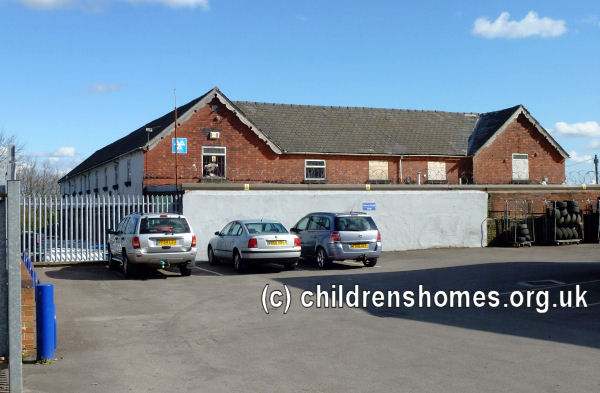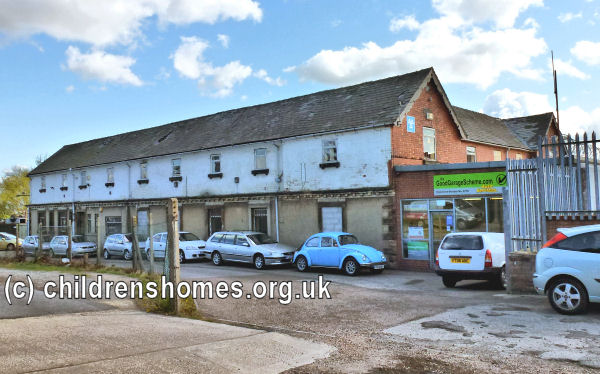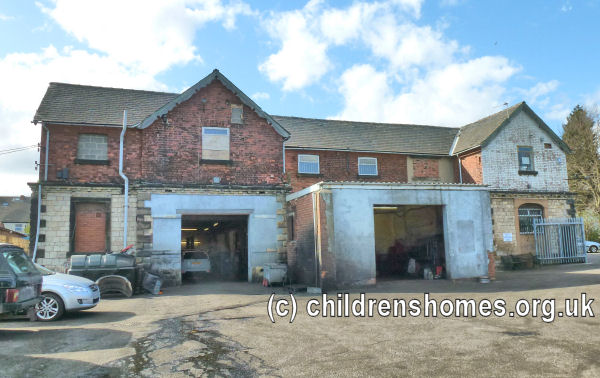West Riding Girls' Reformatory, Doncaster, West Riding of Yorkshire
The West Riding Girls' Reformatory at Doncaster was opened in 1861 as an adjunct to an existing institution at Wakefield. An arrangement was made where Doncaster would take the younger cases committed by the courts, while Doncaster would receive older girls and voluntary inmates. On September 6th, 1861, the purpose-built premises on Balby Road, Doncaster, were officially certified to accommodate 60 girls. Doncaster's first inmates were transferred from the Wakefield establishment, along with their matron Miss Nancy Nicholson. By 1862, however, the matron's post was occupied by Miss Winter.
As was usual in such institutions, the girls received classroom lessons together with industrial training to prepare them for employment in domestic service. For the older girls, this consisted of employment in the laundry, while the younger ones were taught needlework and helped with the housework.
In 1864, construction was completed of an infirmary and additional dormitory. In 1866, the laundry was improved by enlarging the drying and ironing rooms. Also in 1866, the Wakefield branch of the institution was closed and all reformatory committals in the county were now placed at Doncaster.
In 1868-9, the premises were enlarged with the addition of a wing at the north end of the building. This provided dormitory accommodation for an additional thirty girls, a new sitting room, bedroom, etc.
On July 24th, 1876, there was a serious riot at the Reformatory after three recently admitted girls refused to obey orders. This appeared to be a signal for a general revolt by more than 100 inmates who turned out into the grounds, broke windows and caused other damage. The police were called but they were unable to quell the disturbance for some time. Eventually, eight girls who refused to re-enter the building were apprehended and order was restored. Several of the girls injured themselves rather seriously. In the aftermath of the riot, Miss Winter struggled to maintain discipline. An inspection in 1878 noted that there had again been a good deal of misconduct and that five new punishment cells were being erected. It was also reported that a change in management had now taken place, with Miss Reed appointed superintendent, assisted by Miss Vidler. This arrangement was brief however, and the following year, Miss Vidler and Miss Longmead were acting as joint superintendents, a role they were to retain for the remainder of the institution's existence.
The Reformatory site is shown on the 1893 map below.

West Riding Girls' Reformatory site, Doncaster, c.1893.

Former West Riding Girls' Reformatory from the north-west, Doncaster, 2013. © Peter Higginbotham

Former West Riding Girls' Reformatory from the north, Doncaster, 2013. © Peter Higginbotham

Former West Riding Girls' Reformatory from the south-east, Doncaster, 2013. © Peter Higginbotham
The Reformatory premises received increasing criticism in official inspection reports. In August, 1890, it was recorded that 'the building is not well arrange, and the premises were in very indifferent order, wanting repairs in every direction. The dormitories are small, and without proper supervision, and some of them are not satisfactory as regards escape in case of fire." In the autumn of 1890, the institution's management gave notice to resign their certification, but shortly afterwards withdrew their application, pending some proposed alterations. Their attempts to raise the estimated £500 required to make good the building were unsuccessful and the Doncaster Reformatory was closed in around March 1891. The site and its contents were sold off the following August.
The building was later home to a mineral water factory but is now occupied by garage workshops.
Records
Note: many repositories impose a closure period of up to 100 years for records identifying individuals. Before travelling a long distance, always check that the records you want to consult will be available.
- Doncaster Archives, King Edward Road, Balby, Doncaster DN4 0NA. Has Annual Reports (1868-69).
Bibliography
- Carpenter, Mary Reformatory Schools, for the Children of the Perishing and Dangerous Classes, and for Juvenile Offenders (1851, General Books; various reprints available)
- Carlebach, Julius Caring for Children in Trouble (1970, Routledge & Kegan Paul)
- Higginbotham, Peter Children's Homes: A History of Institutional Care for Britain's Young (2017, Pen & Sword)
- Abel Smith, Doroth Crouchfield: A History of the Herts Training School 1857-1982 (2008, Able Publishing)
- Garnett, Emmeline Juvenile offenders in Victorian Lancashire: W J Garnnett and the Bleasdale Reformatory (2008, Regional Heritage Centre, Lancaster University)
- Hicks, J.D. The Yorkshire Catholic Reformatory, Market Weighton (1996, East Yorkshire Local History Society)
- Slocombe, Ivor Wiltshire Reformatory for Boys, Warminster, 1856-1924 (2005, Hobnob Press)
- Duckworth, J.S. The Hardwicke Reformatory School, Gloucestershire (in Transactions of the Bristol and Gloucestershire Archaeological Society, 1995, Vol. 113, 151-165)
Links
- Red Lodge Museum, Bristol — a former girls' reformatory.
Except where indicated, this page () © Peter Higginbotham. Contents may not be reproduced without permission.


